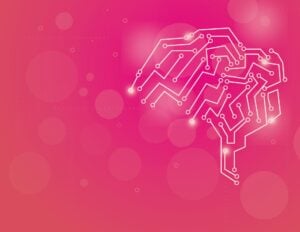AI is already taking shape around us, augmenting and enhancing our everyday lives. Think self-driving car technology, for example. Still, the very concept of AI can be overwhelming to experts and non-experts alike. How can innovators better humanize data and AI? Better comprehension of such data is one goal in and of itself. In deconstructing the data and insights, ultimately, it aids the understanding of the data, thereby supporting the innovation team and whatever its end goals may be.
Discussion With Pete Dulcamara
Humanity-centric innovation is the idea of solving the biggest problems facing humanity in an economically viable way. Pete Dulcamara, Chief Scientist and Technical Vice President at Kimberly-Clark, is focused on how we as a society can make changes now for a better future for humanity. He recently shared his perspective on how humanity-centric innovation is created. He poses three questions: What are the greatest needs for humanity? What are the business models of the 21st century? What are the exponential technologies that can give you a reason to believe that we can solve those problems?
Humanizing The Data
According to ChatGPT, humanizing data and AI involves making the technology more accessible, understandable, and usable by non-experts. This can be accomplished through designing user interfaces that are intuitive and easy to use, creating natural language processing tools that allow users to interact with machines in a conversational way, and providing visualizations of data that make it easier for people to comprehend complex information. Additionally, humanizing AI requires recognizing ethical considerations such as privacy protection and algorithmic bias.
In a recent article on Forbes on this subject of humanizing the data and AI to create better solutions for humans, it is pointed out that a key goal is to understand the end user. With AI gathering and curating the data, with user consent of course, it is thought that ultimately one will gain more insights, more precisely and efficiently than humans could alone. The Forbes article, “Humanizing AI: A Case For Cognitive Design Thinking And Custom AI,” goes on to point out that AI must anticipate multiple challenges and map consumer touchpoints, and has the advantage of prototyping again and again, scaling its visualizations and customizing its solution with inputs from multiple stakeholders. “The hallmark of a good AI solution is the ability to respond to changing user needs, and AI that can surpass automation to seamlessly blend into users’ everyday lives — and learn from user choices and preferences from an early stage — can enable better ROI and UX,” wrote Sayandeb Banerjee, co-founder and CEO of The Math Company.
All Sights Innovation thought it would be interesting to ask ChatGPT how to humanize AI. The answer it gave points to a possible roadmap for the future:
- Use Natural Language Processing (NLP) to provide a more natural and intuitive way for people to interact with AI systems.
- Introduce ethical considerations into AI development, such as designing algorithms that are fair, transparent and accountable in their decision-making processes.
- Utilize machine learning techniques like reinforcement learning to enable machines to learn from mistakes and adapt over time instead of relying on preprogrammed rules or commands.
- Incorporate storytelling elements into the dialogue between humans and AI systems so that the interaction is more engaging and meaningful for both parties involved.
- Create personalized experiences by leveraging data about user preferences, history, context etc., which can be used by an AI system to tailor its responses accordingly.
By taking these steps towards developing an ethical framework for AI development, innovation within this field can be accelerated while also enhancing the innovation community’s ability to understand and analyze their valuable data and insights, as well as protecting vulnerable consumers from potential harms caused by automated decision-making processes.
Want to learn more on the “Humanization of data and AI in innovation”? See Nancy Wellott, Digital Innovation and Strategy Leader, Amica Insurance, at FEI 2023
Contributor
-

Matthew Kramer is the Digital Editor for All Things Insights & All Things Innovation. He has over 20 years of experience working in publishing and media companies, on a variety of business-to-business publications, websites and trade shows.
View all posts
























































































































































































































